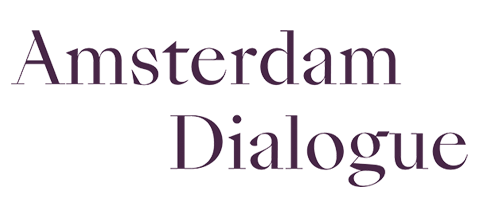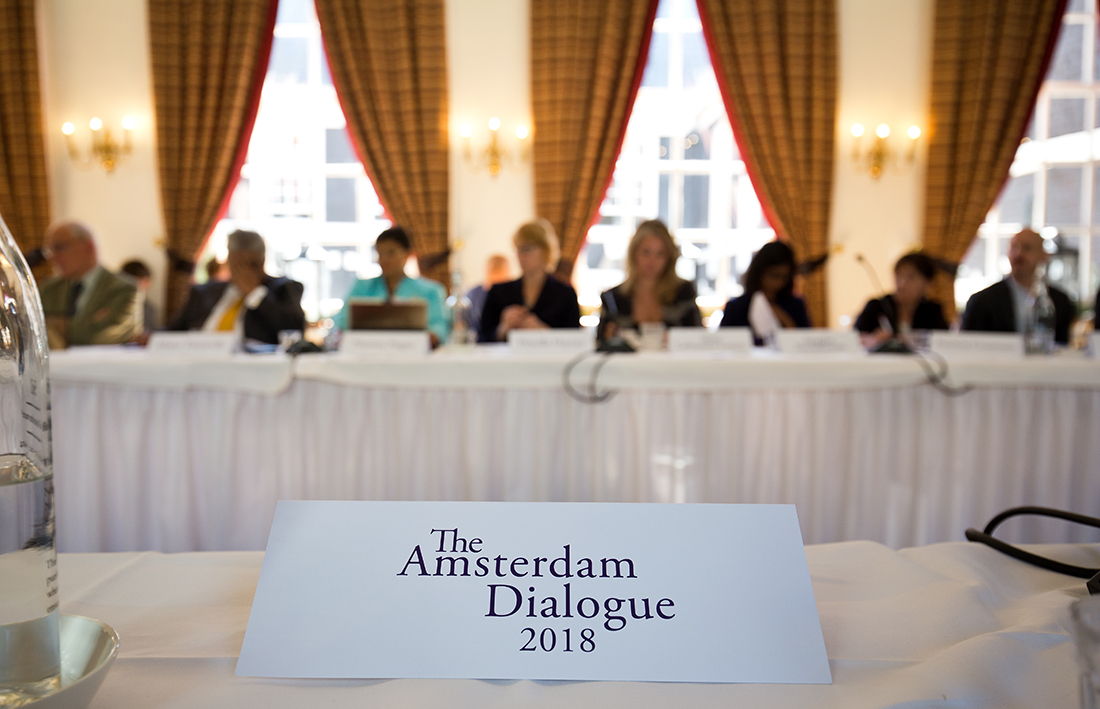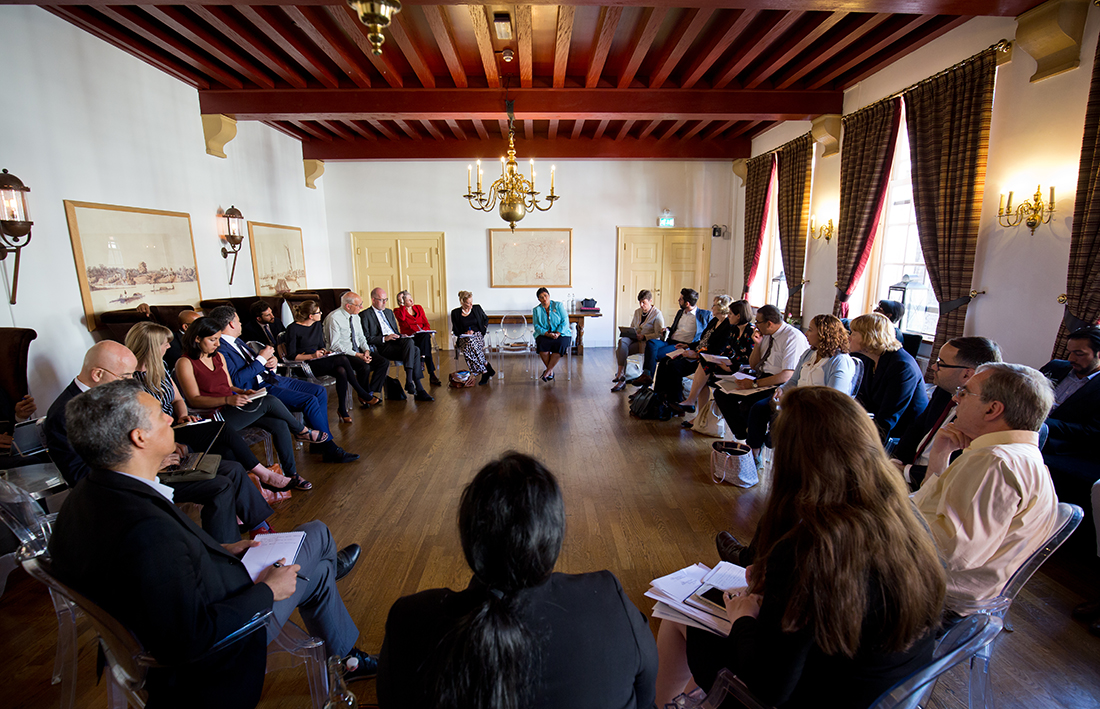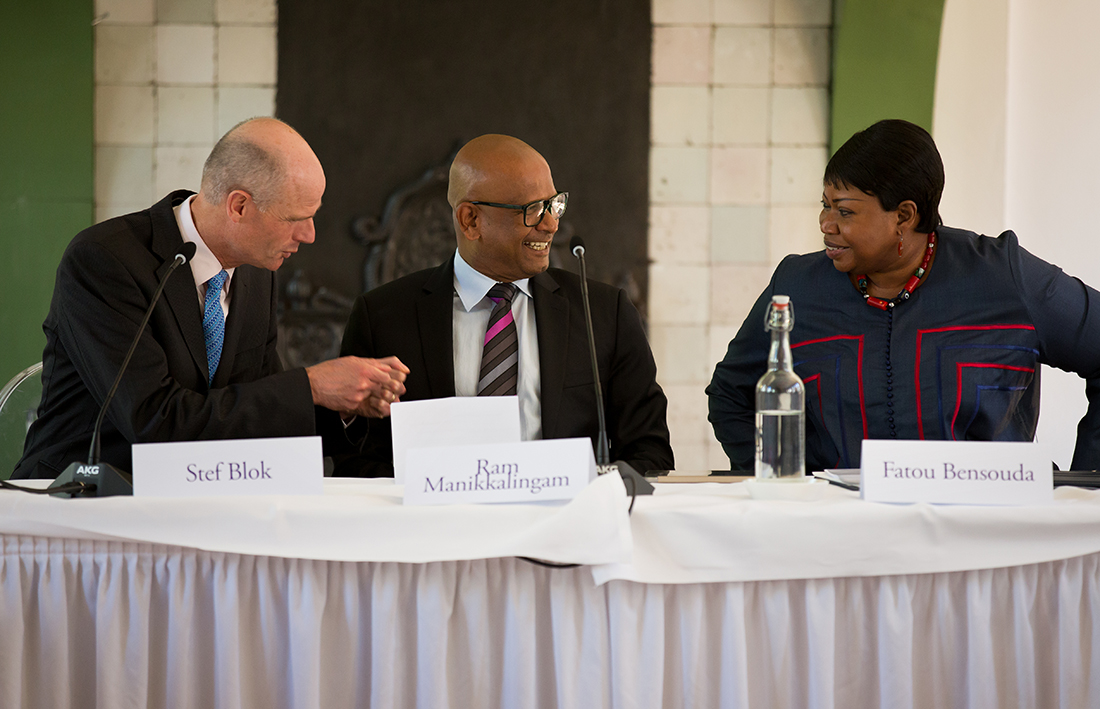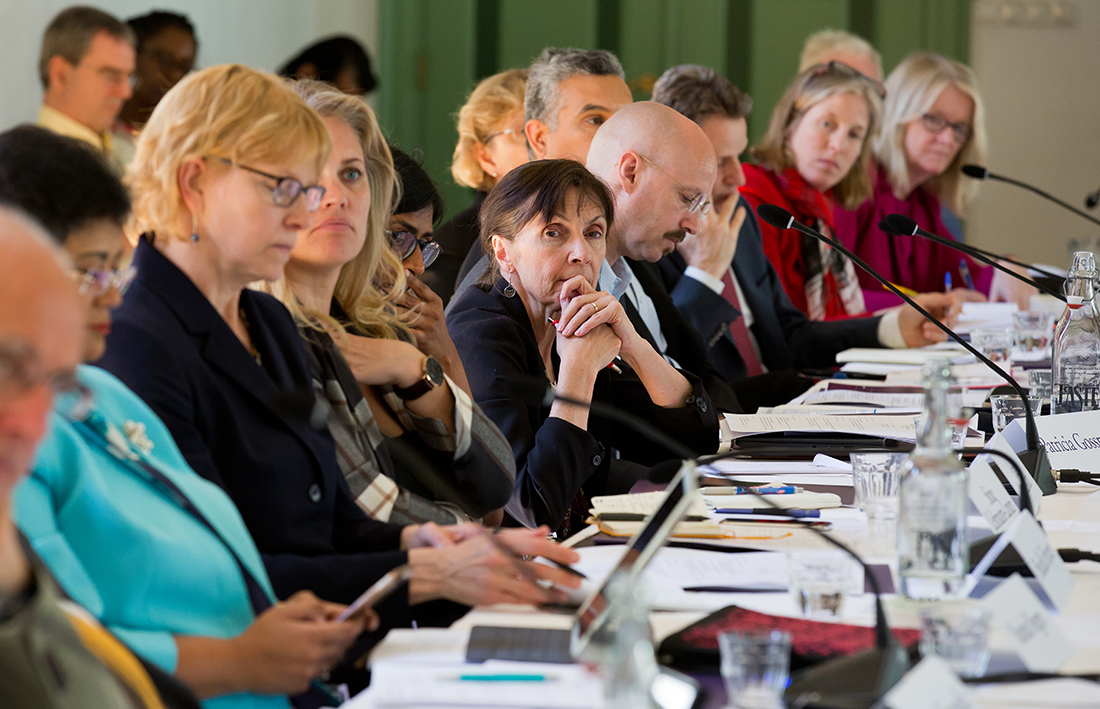The eighth iteration of the Amsterdam Dialogue took place on 7 and 8 May 2018. This year’s conference was opened with a speech delivered by the Minister of Foreign Affairs of the Netherlands, Stef Blok. He highlighted the importance of events like the Amsterdam Dialogue for governments, policy-makers and experts to exchange ideas and learn from each other’s experiences. Furthermore, Minister Blok stressed the Netherlands’ strong support for international efforts promoting peace and justice. A particular focus was put on the Netherlands’ backing of UN mediation efforts and track II dialogue initiatives in Libya including DAG’s – seen as essential and complementary processes working towards a sustainable political solution. Equally important has been the role of the ICC in advancing international justice issues.
During the conference, participants explored the international peace and justice elements of a variety of country-specific situations and thematic issues. Participants discussed the post-Islamic State (IS) situation in Iraq, agreeing that a holistic peacebuilding approach that also tackles political and institutional reform needed to be implemented. On Afghanistan, the participants highlighted the challenges to both accountability and peace when both sides of the conflict benefit substantially from it continuing. On Libya, the participants discussed the various elements of the SRSG’s Action Plan and how these can be implemented, especially given the difficulties of holding elections in an extremely unstable situation. The impact of justice considerations on the peace talks leading to the peace agreement between the government of Colombia and the Revolutionary Armed Forces of Colombia (FARC-EP) was also discussed.
Venezuela and Myanmar are both cases of socio-political crises that, although at very different levels, have developed into violent scenarios. Participants explored possibilities of de-escalation in Venezuela and possible openings for a negotiated solution between the government and opposition. Regarding Myanmar, participants expressed their concern about the humanitarian crisis and discussed possible ways of bringing those responsible to account for their crimes. During a session on accountability in the aftermath of armed conflict, participants discussed the ongoing transitional justice and constitutional reform processes in Sri Lanka. Finally, participants reflected on the unconventional disarmament of Euskadi Ta Askatasuna (ETA) in the Basque Country – a process promoted by Basque civil society and institutions and verified by a non-official international body created by DAG that concluded in April 2017.
Agenda day 1, Monday 7 May. West-Indisch Huis, Amsterdam
12:15 – 13:15 Tea, coffee & light lunch
13:15 – 13:30 Opening plenary
- Fleur Ravensbergen (Assistant Director, Dialogue Advisory Group)
- Richard Dicker (Director, International Justice Program, Human Rights Watch)
- Joost Hiltermann (Programme Director, MENA, International Crisis Group)
13:30 – 13:50 Introduction by Ram Manikkalingam (Director, Dialogue Advisory Group)
13:30 – 13:50 Speech on Libya and Track II Dialogues
- Stef Blok (Minister of Foreign Affairs of the Netherlands)
13:50 – 15:15 Plenary session: Q&A with the Office of the Prosecutor of the International Criminal Court
- Fatou Bensouda (Prosecutor, International Criminal Court)
- Moderator: Radhika Coomaraswamy (Member of the UN Secretary-General’s High-Level Advisory Board on Mediation)
15:15 – 15:30 Tea & coffee
15:30 – 17:00 Parallel break-out sessions:
Iraq
- Harith Hasan Al-Qarawee (Senior Research Fellow, Central European University)
- Ahila Sornarajah (Legal Affairs, UK Mission to the UN)
- Moderator: Fleur Ravensbergen (Assistant Director, Dialogue Advisory Group)
Afghanistan
- Hameed Hakimi (Asia-Pacific Programme Research Associate, Chatham House)
- Patricia Gossman (Senior Researcher on Afghanistan, Human Rights Watch)
- Moderator: Kate Clark (Co-Director, Afghanistan Analysts Network)
17:00 – 18:30 Plenary session: Libya
- Video conference with Ghassan Salamé (Special Representative of the UN Secretary-General for Libya)
- Roland Friedrich (Chief, Joint Analysis and Reporting Hub, United Nations Support Mission in Libya)
- Ousama Assed (Director, Libya Center for Strategic and Future Studies)
- Moderator: Mary Fitzgerald (Consultant on Libya, International Crisis Group)
18:30 – 19:30 Reception & book presentation
- Presentation of “The Peacemakers Paradox: Pursuing Justice in the Shadow of Conflict” (Routledge, 2018) by Priscilla Hayner (UN Standby Team of Mediation Experts)
19:30 Dinner
Agenda day 2, Tuesday 8 May
08:45 – 09:00 Arrival at venue
09:00 – 10:30 Plenary session: Colombia
- Sergio Jaramillo Caro (Ambassador of Colombia to Belgium & former High Commissioner for Peace)
- Fabrizio Hochschild (UN Assistant Secretary-General for Strategic Coordination in Executive Office)
- Moderator: Idun Tvedt (Norwegian Special Envoy to the Philippines)
10:30 – 11:00 Tea & coffee
11:00 – 12:30 Parallel break-out sessions:
Venezuela
- Temir Porras Ponceleon (Visiting professor, Sciences Po and former Deputy Minister of Foreign Affairs of Venezuela)
- Moderator: Sebastian Weinmann (Programme Associate, Dialogue Advisory Group)
Myanmar
- Radhika Coomaraswamy (Member of the UN Secretary-General’s High-Level Advisory Board on Mediation)
- Anagha Neelakantan (Asia Program Director, International Crisis Group)
- Moderator: Leoni Cuelenaere (Ambassador of the Netherlands to Bangladesh)
12:30 – 13:30 Lunch
13:30 – 15:00 Parallel break-out sessions:
The Basque model of disarmament
- Aracelly Santana (Former Deputy UN SRSG for Nepal and member of the International Verification Commission)
- Paul Ríos (Former coordinator of Lokarri)
- Moderator: Juan Garrigues (Special Adviser, Dialogue Advisory Group)
Accountability in the aftermath of armed conflict
- Mano Tittawella (Secretary General, Secretariat for Coordinating Reconciliation Mechanisms, Sri Lanka)
- Richard Dicker (Director, International Justice Program, Human Rights Watch)
- Moderator: Marieke Wierda (Rule of Law Policy Coordinator, Ministry of Foreign Affairs of the Netherlands)
15:00 – 15:30 Tea & coffee
15:30 – 16:30 Conclusions & closing remarks
- David Petrasek (Associate Professor, University of Ottawa)
- Christian Wenaweser (Permanent Representative of Liechtenstein to the UN)
